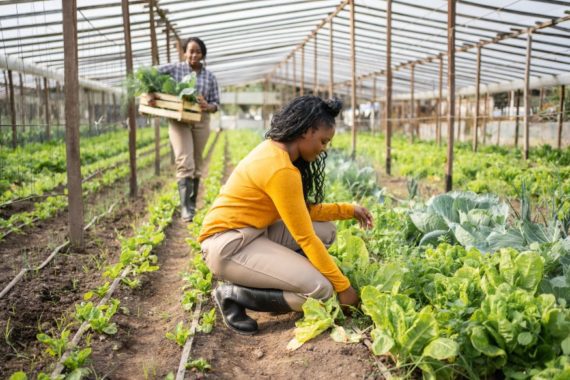President Biden last month signed into law the Inflation Reduction Act – setting in motion one of the most significant pieces of climate legislation ever proposed in the United States.
In fact, it is the first time that Congress has put forth legislation linking climate change with food insecurity and agriculture.
“The Inflation Reduction Act is a historic piece of legislation that invests in creating climate-smart food systems that truly begin the process of enacting justice for those impacted by decades, indeed centuries, of discrimination,” said Sergio Mata-Cisneros, domestic policy analyst at Bread for the World. “This bill is an important first step in building, here in the U.S., the sort of food systems we wish to see also fortified around the world.”
About $20 billion of the $327 billion set aside for climate mitigation and adaption will go toward ensuring climate-smart agriculture practices. Key accounts that received significant increases in funding are the Environmental Quality Incentives Program and the Conservation Stewardship Program.
Both programs provide financial support to farmers – usually in the form of grants – to implement more climate-smart practices on their farms and ranches. For example, farmers can use the funds to improve irrigation techniques – avoiding wastewater while also protecting the supply of freshwater in our nation’s watersheds.
The programs have also helped farmers implement cover crop programs, which provide farmers the tools to grow grasses, grains, legumes, or other crops during off-seasons – whose roots help preserve and improve soil quality.
Taken together, these programs have been widely successful in supporting farmers in adapting to the changing climate around them and have enjoyed strong bipartisan support for many years as part of previous Farm Bills.
The legislation also addresses the historic and racist injustices perpetrated upon farmers of color, particularly Black farmers, and communities of color over the centuries. The Inflation Reduction Act includes $3.1 billion for “distressed borrowers” whose farms might be at risk due to financial hardship.
Another $2.2 billion will go toward a program to give “financial assistance, including the cost of any financial assistance, to farmers, ranchers, or forest landowners determined to have experienced discrimination.”
Finally, the bill also includes a historic $3 billion for Environmental and Climate Justice Block Grants. These block grants will provide communities, especially minority communities who have borne the brunt of toxic pollution, the resources they need to restore their communities on their own terms, according to their own plans.
Creating food systems that are responsive to climate change and equitable in their approach are critical components of ending hunger, both here in the U.S. and internationally. Additionally, climate justice is a critical component to rebuilding communities that have been devastated by climate crises, often further harmed by injustice and discrimination.
Bread for the World’s goal to end hunger centers around a food systems focus: a comprehensive approach with three pillars at its center: nutrition, equity, and climate.
The Inflation Reduction Act marks, what we hope to be, a new chapter in Congress’ focus on combatting climate change and engaging in all-of-government policy that effectively ends hunger, addresses climate change, and brings about true racial justice.
Daren Caughron is an international policy analyst at Bread for the World.



